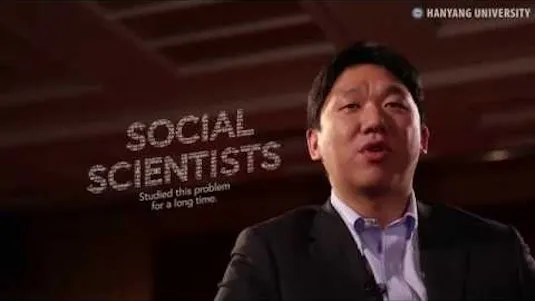
Critical criminology and the social sciences 
This free course, Critical criminology and the social sciences, will introduce you to the main disciplines within the social sciences, with a focus on critical criminology. You will explore the history and development of criminology, and examine the theories and debates that have shaped the field. You will also learn about the role of the media in shaping public perceptions of crime. Finally, you will consider the implications of critical criminology for policy and practice. ▼
ADVERTISEMENT
Course Feature
![]() Cost:
Cost:
Free
![]() Provider:
Provider:
OpenLearn
![]() Certificate:
Certificate:
Free Certification
![]() Language:
Language:
English
![]() Start Date:
Start Date:
On-Demand
Course Overview
❗The content presented here is sourced directly from OpenLearn platform. For comprehensive course details, including enrollment information, simply click on the 'Go to class' link on our website.
Updated in [May 25th, 2023]
Critical criminology and the social sciences is an ideal course for those interested in exploring the relationship between crime and society. It will provide learners with an understanding of the various theories and approaches used to study crime and its impact on society. Learners will gain an understanding of the different types of crime, the causes of crime, and the ways in which crime is addressed and prevented. The course will also explore the role of the criminal justice system in responding to crime, and the implications of crime for individuals, communities, and society as a whole.
Learners will also gain an understanding of the various research methods used to study crime and its impact on society. This includes quantitative and qualitative research methods, as well as the use of surveys, interviews, and other data collection techniques. Learners will also gain an understanding of the ethical considerations involved in conducting research on crime and its impact on society.
Finally, learners will gain an understanding of the various policy approaches used to address crime and its impact on society. This includes an exploration of the various strategies used to reduce crime, such as prevention, deterrence, and rehabilitation. Learners will also gain an understanding of the various social and economic policies used to address crime and its impact on society.
[Applications]
The application of this course can be seen in the development of a better understanding of the social sciences and their role in the study of crime. It can also be used to gain a better understanding of the various theories and approaches to crime and its causes. Additionally, this course can be used to develop an understanding of the various methods used to study crime and its effects on society. Finally, this course can be used to gain an understanding of the various ways in which crime can be addressed and prevented.
[Career Paths]
1. Criminologist: Criminologists study the causes, consequences, and prevention of criminal behavior. They analyze data, conduct research, and develop theories to explain criminal behavior. They also work with law enforcement and other criminal justice professionals to develop strategies for crime prevention and intervention. The field is growing rapidly, with new research and technology providing new opportunities for criminologists to make a difference.
2. Social Worker: Social workers provide support and assistance to individuals, families, and communities in need. They work with clients to identify and address social, emotional, and economic issues, and help them access resources and services. Social workers also advocate for social justice and work to create positive change in their communities.
3. Forensic Psychologist: Forensic psychologists use psychological principles to investigate and analyze criminal behavior. They work with law enforcement, attorneys, and other criminal justice professionals to understand the motivations and mental states of criminals. They also provide expert testimony in court cases and help develop strategies for rehabilitation and prevention.
4. Criminal Justice Policy Analyst: Criminal justice policy analysts research and analyze criminal justice policies and procedures. They evaluate the effectiveness of existing policies and recommend changes to improve the criminal justice system. They also work with government agencies and other stakeholders to develop new policies and programs.
[Education Paths]
1. Criminology Degree: Criminology is the study of crime, its causes, and its effects on society. It is an interdisciplinary field that draws on sociology, psychology, law, and other social sciences to understand the causes of crime and develop strategies for its prevention. Criminology degrees are becoming increasingly popular as they provide students with the skills and knowledge to work in a variety of criminal justice settings. Developing trends in criminology include the use of technology to track and analyze crime data, the use of restorative justice practices, and the exploration of the social and economic factors that contribute to crime.
2. Sociology Degree: Sociology is the study of human behavior and social structures. It examines how individuals interact with each other and how societies are organized. Sociology degrees provide students with the skills to analyze and understand social phenomena, such as poverty, inequality, and discrimination. Developing trends in sociology include the use of big data to study social phenomena, the exploration of the impact of technology on society, and the study of the intersection of race, gender, and class.
3. Psychology Degree: Psychology is the study of the mind and behavior. It examines how individuals think, feel, and act, and how these processes are influenced by the environment. Psychology degrees provide students with the skills to understand and analyze human behavior, as well as the ability to develop interventions to help people cope with mental health issues. Developing trends in psychology include the use of technology to diagnose and treat mental health issues, the exploration of the impact of trauma on mental health, and the study of the intersection of culture and mental health.
4. Law Degree: Law is the study of the legal system and its application to society. It examines how laws are created, interpreted, and enforced. Law degrees provide students with the skills to understand and analyze legal issues, as well as the ability to develop legal strategies to protect the rights of individuals and organizations. Developing trends in law include the use of technology to improve access to justice, the exploration of the impact of international law on domestic law, and the study of the intersection of law and social justice.
Course Provider

Provider OpenLearn's Stats at AZClass
Discussion and Reviews
0.0 (Based on 0 reviews)
Explore Similar Online Courses

Essential Skills for Sweater Knitting

IBM & Darden Digital Strategy

Python for Informatics: Exploring Information

Social Network Analysis

Introduction to Systematic Review and Meta-Analysis

The Analytics Edge

DCO042 - Python For Informatics

Causal Diagrams: Draw Your Assumptions Before Your Conclusions

Whole genome sequencing of bacterial genomes - tools and applications

Criminology and Criminal Psychology Certified CSI+ Course

Criminology : Fundamentals of Criminal Psychology and Law


Start your review of Critical criminology and the social sciences